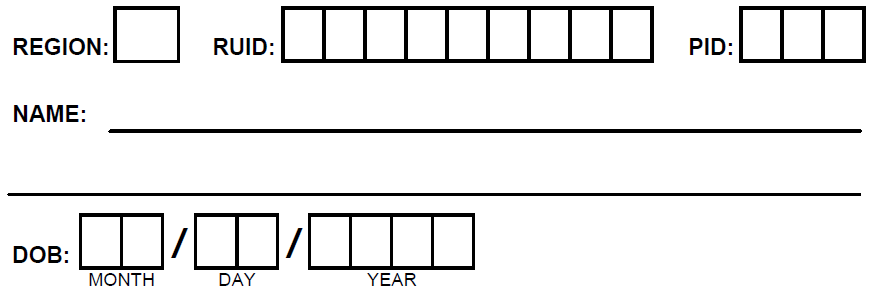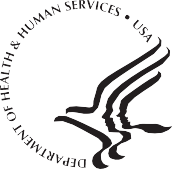Form 63 Burdens and Economic Impacts of Medical Care SAQ
Medical Expenditure Panel Survey - Household and Medical Provider Components
Attachment 63 -- ESAQ
Burdens and Economic Impacts of Medical Care SAQ
OMB: 0935-0118
61143



Understanding
Your Health and Impacts of Healthcare Costs


OMB# XXXX-XXXX
Exp. Date XX/XX/XXXX

Draft
2025
Your
opinion matters!

This survey asks about your general well-being and how health needs impact your time or your work. Your participation will help us better understand how health and health care affect people’s lives.
Survey Instructions
Please answer every question by marking one box "." If you are unsure about how to answer a question, please give the best answer you can.
You are sometimes told to skip over some questions in this survey. When this happens you will see arrows that tell you what questions to answer next, like this:


 Yes
Yes
 No If
No, go to question 3
No If
No, go to question 3
Next Question
Your participation is voluntary and all of your answers will be kept confidential as required by law. If you have any questions about this booklet, please call Alex Scott at 1-800-945-MEPS (6377).
If you choose to complete the survey, MEPS will mail you a $20 debit card.



This Booklet Should Be Completed By
 This
survey
is
authorized
under
42
U.S.C.
299a.
This information
collection is voluntary and the confidentiality of your responses to
this survey is protected
by
Sections
944(c)
and
308(d)
of
the
Public
Health
Service
Act
[42
U.S.C.
299c-3(c)
and
42
U.S.C.
242m(d)].
Information
that
could
identify
you
will
not
be
disclosed
unless
you
have
consented
to
that
disclosure.
Public
reporting
burden
for
this
collection
of
information
is
estimated
to
average
10
minutes
per
response,
the
estimated
time
required
to
complete
the
survey.
An
agency
may
not
conduct
or
sponsor,
and
a
person
is
not
required
to
respond
to,
a
collection
of
information
unless
it
displays
a
currently
valid
OMB
control
number.
The data you provide will help
AHRQ’s mission to produce evidence to make health care safer,
higher quality, more accessible, equitable, and affordable.
Send
comments
regarding
this
burden
estimate
or
any
other
aspect
of
this
collection
of
information,
including
suggestions
for
reducing
this
burden,
to:
AHRQ
Reports
Clearance
Officer
Attention:
PRA,
Paperwork
Reduction
Project
(OMB control number 0935-0118) AHRQ,
5600
Fishers
Lane, Room
#07W42, Rockville, MD 20857 or by email at
[email protected].
This
survey
is
authorized
under
42
U.S.C.
299a.
This information
collection is voluntary and the confidentiality of your responses to
this survey is protected
by
Sections
944(c)
and
308(d)
of
the
Public
Health
Service
Act
[42
U.S.C.
299c-3(c)
and
42
U.S.C.
242m(d)].
Information
that
could
identify
you
will
not
be
disclosed
unless
you
have
consented
to
that
disclosure.
Public
reporting
burden
for
this
collection
of
information
is
estimated
to
average
10
minutes
per
response,
the
estimated
time
required
to
complete
the
survey.
An
agency
may
not
conduct
or
sponsor,
and
a
person
is
not
required
to
respond
to,
a
collection
of
information
unless
it
displays
a
currently
valid
OMB
control
number.
The data you provide will help
AHRQ’s mission to produce evidence to make health care safer,
higher quality, more accessible, equitable, and affordable.
Send
comments
regarding
this
burden
estimate
or
any
other
aspect
of
this
collection
of
information,
including
suggestions
for
reducing
this
burden,
to:
AHRQ
Reports
Clearance
Officer
Attention:
PRA,
Paperwork
Reduction
Project
(OMB control number 0935-0118) AHRQ,
5600
Fishers
Lane, Room
#07W42, Rockville, MD 20857 or by email at
[email protected].

The Agency for Healthcare Research and Quality of the U.S. Department of Health and Human Services

 1
1

THIS PAGE INTENTIONALLY LEFT BLANK
 Your
Health
Your
Health
Under each heading, please check the one box that best describes your health today.
 I
have no problems walking
I
have no problems walking
 I
have slight problems walking
I
have slight problems walking


 I
have moderate problems walking I have severe
problems walking I am unable to walk
I
have moderate problems walking I have severe
problems walking I am unable to walk
Self-Care

 I
have no problems washing or dressing myself
I
have no problems washing or dressing myself
I have slight problems washing or dressing myself
 I
have moderate problems washing or dressing myself
I
have moderate problems washing or dressing myself
 I
have severe problems washing or dressing myself
I
have severe problems washing or dressing myself
 I
am unable to wash or dress myself
I
am unable to wash or dress myself
Usual activities (e.g., work, study, housework, family or leisure activities)

 I
have no problems doing my usual activities
I
have no problems doing my usual activities
I have slight problems doing my usual activities
 I
have moderate problems doing my usual activities
I
have moderate problems doing my usual activities
 I
have severe problems doing my usual activities
I
have severe problems doing my usual activities
 I
am unable to do my usual activities
I
am unable to do my usual activities
Pain/Discomfort

 I
have no pain or discomfort
I
have no pain or discomfort
I have slight pain or discomfort
 I
have moderate pain or discomfort
I
have moderate pain or discomfort
 I
have severe pain or discomfort
I
have severe pain or discomfort
 I
have extreme pain or discomfort
I
have extreme pain or discomfort
Anxiety/ Depression

 I
am not anxious or depressed
I
am not anxious or depressed
I am slightly anxious or depressed
 I
am moderately anxious or depressed
I
am moderately anxious or depressed
 I
am severely anxious or depressed
I
am severely anxious or depressed
 I
am extremely anxious or depressed
I
am extremely anxious or depressed
Questions 1-6, © EuroQol Research Foundation. EQ-5DTM is a trademark of the EuroQol Research Foundation. Reproduced by permission of EuroQol Research Foundation. Reproduction of this version is not allowed. For reproduction, use or modification of the EQ-5D (any version), please register your study by using the online EQ registration page: www.euroqol.org.
The best health
you can imagine 100 95 90 85 80 75 70 65 60 55 50 45 40 35 30 25 20 15 10 5 0 The worst
heath you can imagine

We would like to know how good or bad your health is today.
This scale is numbered from 0 to 100.
100 means the best health you can imagine.
0 means the worst health you can imagine.
Mark an X on the scale to indicate how your health is today.
Now, please write the number you marked on the scale in the box below.

YOUR HEALTH TODAY =

 Time
and Paying for Health Care
Time
and Paying for Health Care
For each item on this page, please report the total hours by week, by month, or for the last year.
Please think of how much time you spend seeing doctors, nurses, therapists or other health care providers about your own health, or going to the pharmacy for your own medications.
During the past year, about how much time did you spend on average on these activities, including travel time?
hours per week |
OR |
hours per month |
OR |
hours last year |
Please think of how much time you spend taking other people to see doctors, nurses, therapists
or other health care providers, or going to the pharmacy for their medications.
During the past year, about how much time did you spend on average on
these activities,
including travel time?
hours per week |
OR |
hours per month |
OR |
hours last year |
During the past year, about how much time did you spend on average paying or managing medical bills, including dealing with insurance claims? If you helped another person manage his or her bills or claims, please include that time.
hours per week |
OR |
hours per month |
OR |
hours last year |
During the past year, about how much time did you spend on average filling out forms, finding a doctor or other health provider who will see you, finding or understanding health plan information, and getting approval for any care, tests, or treatment? If you helped another person with these tasks, please include that time.
hours per week |
OR |
hours per month |
OR |
hours last year |
In the past year, did your health insurance deny or delay prior approval for a treatment, service, visit, or drug before you received it?

 Yes
Yes
 Never
had health insurance during past year
Never
had health insurance during past year
 Not
applicable/haven’t used services
Not
applicable/haven’t used services

Suppose you had an unexpected medical bill, and the amount not covered by any insurance you may have came to $500, how would you pay the bill?
 Pay
the bill right away by cash, check, or debit card
Pay
the bill right away by cash, check, or debit card
 Pay
the bill right away out of your Health Savings Account or Flexible
Savings Account
Pay
the bill right away out of your Health Savings Account or Flexible
Savings Account
 Put
it on a credit card and pay it off in full at the next statement
Put
it on a credit card and pay it off in full at the next statement
 Put
it on a credit card and pay it off over time
Put
it on a credit card and pay it off over time
 Borrow
money from a bank, a payday lender, or friends or family to pay the
bill
Borrow
money from a bank, a payday lender, or friends or family to pay the
bill

 Make
a payment plan with provider
Make
a payment plan with provider
Would not be able to pay the bill at all
 Something
else
Something
else
In the past year, have you or your family had to make any financial sacrifices because of your
physical or mental health or its treatment?
Mark all that apply.
 Reduced
spending on vacation or leisure activities
Reduced
spending on vacation or leisure activities
 Delayed
large purchases (e.g., car)
Delayed
large purchases (e.g., car)
 Reduced
spending on basics (e.g., food and clothing)
Reduced
spending on basics (e.g., food and clothing)
 Used
savings set aside for other purposes (e.g., retirement, educational
funds, family support)
Used
savings set aside for other purposes (e.g., retirement, educational
funds, family support)

 Made
a change to living situation (e.g., sold, refinanced, or moved to a
smaller residence)
Made
a change to living situation (e.g., sold, refinanced, or moved to a
smaller residence)
Other
 No
sacrifices
No
sacrifices

 Impacts
On Work
Impacts
On Work
At any time in the past year, were you working for pay at a job or business (including being self-employed)?


 Yes
Yes

No If No, go to question 22 on page 9
15. Because of your physical or mental health or its treatment, did any of your employers do anything to help you out so that you can continue working in the past year?
Mark all that apply.
 I
didn’t need any help from my employers
I
didn’t need any help from my employers
 Get
someone to help me with my work duties
Get
someone to help me with my work duties
 Shorten
my work days
Shorten
my work days
 Allow
me to change the time I came to and left work
Allow
me to change the time I came to and left work
 Allow
me more breaks and rest periods
Allow
me more breaks and rest periods

 Change
the job to something I could do
Change
the job to something I could do
Help me learn new skills or get me special equipment or a computer for the job
 Assist
me in receiving rehabilitative services from an external provider
Assist
me in receiving rehabilitative services from an external provider
 Allow
me to work from home
Allow
me to work from home
 Something
else to help me out
Something
else to help me out
 My
employers didn’t offer me any help
My
employers didn’t offer me any help
 I’m
self-employed
I’m
self-employed
Because of your physical or mental health or its treatment, did you ask any of your employers for help to do your job that you did not receive in the past year?
 Yes
Yes
 No,
because I didn’t need any help from my employer
No,
because I didn’t need any help from my employer
 No,
because I received all the help I needed
No,
because I received all the help I needed
 No,
but I would have liked to get help (or more help) from my employer
No,
but I would have liked to get help (or more help) from my employer
 I’m
self-employed
I’m
self-employed

In the past year, did you stay at a job in part because you were concerned about losing health insurance for yourself or for the family?

 Yes
Yes
No
Because of your physical or mental health or its treatment, have there been days in the past year when you needed to take off from work but did not?


 Yes
Yes

No If No, go to question 20 on page 9
Why did you decide not to take time off?
Mark all that apply.

 Too
much work
Too
much work
Wanted to save leave
 Leave
was denied
Leave
was denied
 Did
not have any paid or unpaid leave
Did
not have any paid or unpaid leave
 Did
not have enough leave
Did
not have enough leave

 Fear
of job loss or other negative employment-related consequence
Fear
of job loss or other negative employment-related consequence
Could not afford the loss in income
 Other
Other

Now thinking about the past 7 days, were you working for pay at a job or business (including
being self-employed)?


 Yes
Yes

No If No, go to question 22
In the past 7 days, think about days you were limited in the amount or kind of work you could do, days you accomplished less than you would like, or days you could not do your work as carefully as usual.
During the past 7 days, how much did your health problems or mental health affect your productivity while you were working?
If health problems or mental health affected your work only a little, choose a low number. Choose a high number if health problems or mental health affected your work a great deal.
-
Health problems had no effect on my work
Health problems completely prevented me from working
0
1
2
3
4
5
6
7
8
9
10
CIRCLE A NUMBER
In the past 7 days, think about times you were limited in the amount or kind of regular daily activities you could do (e.g., work around the house, shopping, childcare, exercising, or studying, etc.) and times you accomplished less than you would like.
During the past 7 days, how much did your health problems or mental health affect your ability to do your regular daily activities, other than work at a job?
If health problems or mental health affected your activities only a little, choose a low number. Choose a high number if health problems or mental health affected your activities a great deal.
-
Health problems had no effect on my daily activities
Health problems completely prevented me from doing my daily activities
0
1
2
3
4
5
6
7
8
9
10
CIRCLE A NUMBER

 Informal
Caregiving
Informal
Caregiving
During the past 30 days, did you provide regular care or assistance to a friend or family member who has a health problem or disability?



No If No, go to Date Completed on back cover
What is his or her relationship to you? (If more than one person, please refer to the person to whom you are giving the most care.)

 Mother
Mother
Father
 Child
Child
 Husband
Husband

 Wife
Wife
Live-in partner
 Other
relative
Other
relative
 Non-relative/Family
friend
Non-relative/Family
friend
Do you live with this person?

 Yes
Yes
No
For how long have you provided care for that person?

 Less
than 30 days
Less
than 30 days
1 month to less than 6 months

 6
months to less than 1 year
6
months to less than 1 year
1 year to less than 2 years

 2
years to less than 5 years
2
years to less than 5 years
5 years or more

In the past 30 days, did you provide care for this person by managing personal care such as giving medications, feeding, dressing, or bathing?

 Yes
Yes
No
In the past 30 days, did you provide care for this person by managing household tasks such as cleaning, managing money, or preparing meals?

 Yes
Yes
No
In the past 30 days, did you stay with this person to provide help when needed because they cannot be left alone?

 Yes
Yes
No
In the past 30 days, did helping this person ever keep you from working for pay (including being self-employed)?

 Yes
Yes
No
In an average week, how many hours do you provide care or assistance?

 Up
to 8 hours per week
Up
to 8 hours per week
9 to 19 hours per week

 20
to 39 hours per week
20
to 39 hours per week
40 hours or more
Questions 23, 24, 26, 27, 28, 31. Centers for Disease Control and Prevention (CDC). Behavioral Risk Factor Surveillance System Survey Questionnaire. Atlanta, Georgia: U.S. Department of Health and Human Services, Centers for Disease Control and Prevention, [2022]
Question 30. Freedman, Vicki A., Skehan, Maureen E., Hu, Mengyao, Wolff, Jennifer, Kasper, Judith D. 2019. National Study of Caregiving I-III User Guide. Baltimore: Johns Hopkins Bloomberg School of Public Health. Available at www.nhats.org

D


 ate
completed:
ate
completed:
/
MONTH
/
DAY
YEAR
Who completed this form?



 Person
named on
front of
this form Someone
else
Person
named on
front of
this form Someone
else
If Someone Else, what is person’s relationship to the person named on the front of this form?

 Husband
or wife Unmarried partner
Husband
or wife Unmarried partner

 Mother,
father, or
guardian Son or daughter
Mother,
father, or
guardian Son or daughter

 Other
relative Not related
Other
relative Not related

24-233
| File Type | application/vnd.openxmlformats-officedocument.wordprocessingml.document |
| Author | legum_g |
| File Modified | 0000-00-00 |
| File Created | 2024-07-21 |
© 2026 OMB.report | Privacy Policy